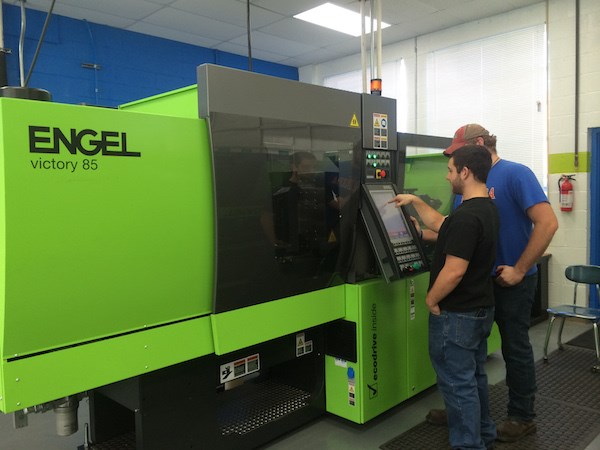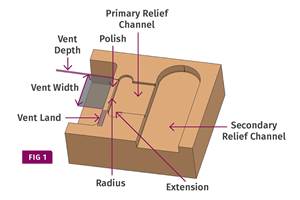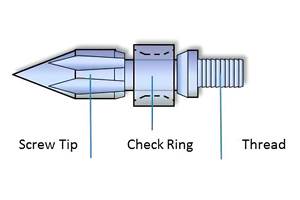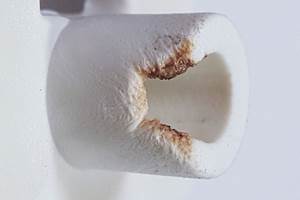Tiebarless Training in Tennessee
A manufacturing education center and two new Engel injection molding machines are doing their part in Tennessee to help feed that state鈥檚 voracious appetite for skilled plastics workers in its burgeoning automotive industry.
The 85-ton tiebarless Engel victory spex and 110-ton all-electric machines were installed at the (TCAT) Pulaski as part of its revamped Advanced Manufacturing Program that’s busy readying workers for the region’s booming automotive sector.
GM, Nissan, and Volkswagen all build cars in the state, supported by parts suppliers like Denso, Calsonic Kansei, Yorozu Automotive, and M-Tek, with more companies on the way.
In the first quarter alone, Denso, Unipres USA Inc., Nissan, Magneti Marelli, and Hicks Plastics announced investments in the state, which according to the Tennessee Automotive Manufacturers Association (TAMA), employs 115,939 in auto manufacturing jobs with more than 1000 auto manufacturers and suppliers statewide.
To help those companies fill out their shifts, Tennessee has spent more than $80 million in automotive industry training since 2006, according to TAMA. Receiving a portion of that money is the TCAT Pulaski. Located in South Central Tennessee, Pulaski sits 75 miles south of Nashville and only 20 miles from the Alabama border.
TCAT Pulaski is one of 26 applied technology centers in Tennessee, part of a statewide system created in 1963. The centers’ Advanced Manufacturing Education offers students three career paths: robotics automation, PLC automation, and plastics injection molding, and students that complete the program are awarded an engineering technician diploma. The plastics engineering technician certificate is comprised of three labs and an internship/shop project totaling 1296 hours.
Dino Owen, Advanced Manufacturing Education (AME) Instructor at TCAT Pulaski, told Plastics Technology that the two new Engel’s will replace a hydraulic Nissei that had been used in training for 12 years. Owen said at this time there are 17 students in the AME program, with 10 of those on the injection molding track.
A recent lesson for those 10: molding machine installation. Owen said the students assisted in rigging, leveling, and wiring the machines for their initial start up. The 85-ton press, which was purchased, and the 110-ton machine, which is on loan, will now ready those students for the molding world around them.
“Thanks to the governor’s grant we received, our equipment was updated and technology advanced to meet employment needs of local 大象传媒,” Owen said. “Students feel they are working with state-of-the-art equipment, which closely matches equipment used by growing companies within 100-mile radius.”
Owen said that all students must complete hands-on projects focusing on areas like injection speed, transfer, pressure, temperature, and cycle optimization. In addition, students working towards the Injection Molding Masters Diploma, also study tool and die technology, including practice building insert molds, with draft angles, vents, waterlines, part design, and more taught as they cut their molds.
Owen said in the program students build their molds in aluminum, with a recent project calling for 3D printing of a simple cavity. “Our record thus far is 20 parts from a plastic 3D-printed cavity,” Owen said.
Partnering on behalf of plastics training isn’t new for Engel, which over the last three years has also set up machines at Bradley University (2013: 30-ton hybrid e-victory), Clemson University (2014: 30-ton victory); and Nypro University (2015: 105-ton e-mac). Its efforts, and those of programs like TCAT, come at a time of need for the U.S. plastics industry.
“Our goal is to help bridge the skills gap that manufacturing is experiencing,” Owen said. “I feel the 27 TCATs’ statewide are the best match for student and 大象传媒 to achieve this goal.”

Related Content
Back to Basics on Mold Venting (Part 2: Shape, Dimensions, Details)
Here’s how to get the most out of your stationary mold vents.
Read MoreGot Streaks or Black Specs? Here’s How to Find and Fix Them
Determining the source of streaking or contamination in your molded parts is a critical step in perfecting your purging procedures ultimately saving you time and money.
Read MoreBack to Basics on Mold Venting (Part 1)
Here’s what you need to know to improve the quality of your parts and to protect your molds.
Read MoreUse These 7 Parameters to Unravel the Melt Temperature Mystery
Despite its integral role in a stable process and consistent parts, true melt temperature in injection molding can be an enigma. Learning more about these seven parameters may help you solve the puzzle.
Read MoreRead Next
People 4.0 – How to Get Buy-In from Your Staff for Industry 4.0 Systems
Implementing a production monitoring system as the foundation of a ‘smart factory’ is about integrating people with new technology as much as it is about integrating machines and computers. Here are tips from a company that has gone through the process.
Read MoreFor PLASTICS' CEO Seaholm, NPE to Shine Light on Sustainability Successes
With advocacy, communication and sustainability as three main pillars, Seaholm leads a trade association to NPE that ‘is more active today than we have ever been.’
Read MoreMaking the Circular Economy a Reality
Driven by brand owner demands and new worldwide legislation, the entire supply chain is working toward the shift to circularity, with some evidence the circular economy has already begun.
Read More















